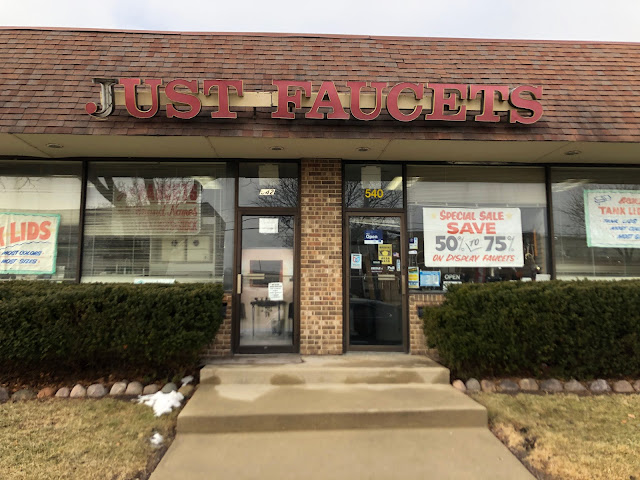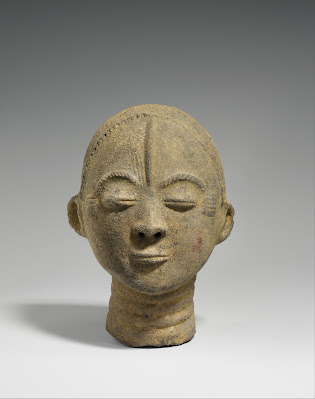
As a general rule, I leave uncovering deception to the watchdogs, to investigative reporters and those who dig and probe.
But, well, sometimes y0u just stumble across it.
Our to-the-studs bathroom remodeling project, nearing its first anniversary, had hung up on a particular piece of plumbing: a pop-up drain that had to fit into the old bathtub, which we did not remove because a) it is made of iron and you can't buy that kind of thing anymore; b) it would cost thousands of dollars more to take it out and rebuild the floor underneath and c) my wife wants a tub in the house anyway, to bathe the dog and any grandchildren who may come along in the next decade, hint hint.
But when it came time to put the spanking new white PVC drain pipe in she had bought, our contractor kept the original drain pipe because it is brass and brass is better, which made sense. In theory. In reality, that meant the new pop-up drain we bought wouldn't fit in because, while the proper diameter, the threads were spaced differently. That is a thing, apparently, in plumbing, as I learned this week.
The solution I came up with was to go to Banner Plumbing Supply, because I had passed it on Lake Cook Road, driving out to Buffalo Grove, where my parents now live. The place is enormous, and I imagined it would have the piece we were looking for because it was big enough to hold all pipes and valves and drains and faucets that could have ever been conceived or manufactured since the dawn of time. It's that big. My wife and I—we tend to do these journeys as a team, for company, and I suppose for self-protection too, the way gun ranges will only rent weapons to a pair of people, to cut down on spontaneous suicide— entered with confidence. The people at Banner were brisk and polite, efficient and pleasant and helpful, everything we could have hoped for, except for one little thing: they didn't have the part we needed. They did, however, point us toward something called "Just Faucets" in Arlington Heights. They had a photocopied map and everything. Which struck me as selfless.
I thought of saying, "Can we really expect to find a drain at a place called 'Just Faucets?" Is this not deceptive, to claim they're only in the faucet trade, publically, in their very name, and yet seem to be engaged in sub rosa non-faucet commerce as well?
But honestly frustration had drained the wisenheimerhood out of me, and as we drove the half hour from Banner to Just Faucets. Plenty of time to brood, darkly and aloud, on all sorts of grim, defeatist tangents. Such as: why are we were doing this at all? Why isn't our contractor doing this? He's the guy who spurned my wife's perfectly good PVC pipe in favor of the supposedly better half century plus brass pipe, which might even be better in theory but not in the suddenly crucial area of allowing the new drain to be screwed in. Maybe we could just re-plate the old drain, battered and corroded though it was.
"We could use a white rubber plug on a chain," I suggested. My wife didn't respond. "Or we could just stuff a rag in the drain, fill the tub, and drown ourselves," I didn't say, or even think that second part. But it succinctly captures my mood on the drive.
"Just Faucets" seemed a refugee from a David Letterman sketch—what was it? "Just Lightbulbs" or something? We found a cluttered, small—the polar opposite of Banner Plumbing Supply—yet somehow reassuring store of the sort that it would seem international chains had eliminated. Except this one exists, or at least I think it exists, assuming it didn't just rise from the mist of our despair, like Brigadoon. Lou took our old battered drain and walked over to an array of threaded rings and started fiddling with them, hope, which pretty much had been drown by a sloshing tubful of cold pessimism, threw off a single spark.
Lou made a satisfied sound and presented us with a new drain, gauged to fit thanks to an adaptor, and for only $38, which you can bet your ass is coming off what we owe the contractor. I'm at the stage of life where problems loom larger than they should, so much that their solutions become thrilling, glorious releases from failure and anxiety. I felt so delighted I considered hugging Lou, but this was not a place where men hug for any reason, even for moving their endless bathroom project through its final yet eternal, Zeno's Paradox, halfway to the goal every day phase. I did immediately think of this blog, and asked Lou his name, which I didn't know up to that point, and how old "Just Faucets" is. He said 40 years, 20 in this location, and introduced me to the owner, sitting nearby who looked up at me with a minimum of curiosity.
"Thank you for your important work," I said, and meant it.
 |
| Lou |











